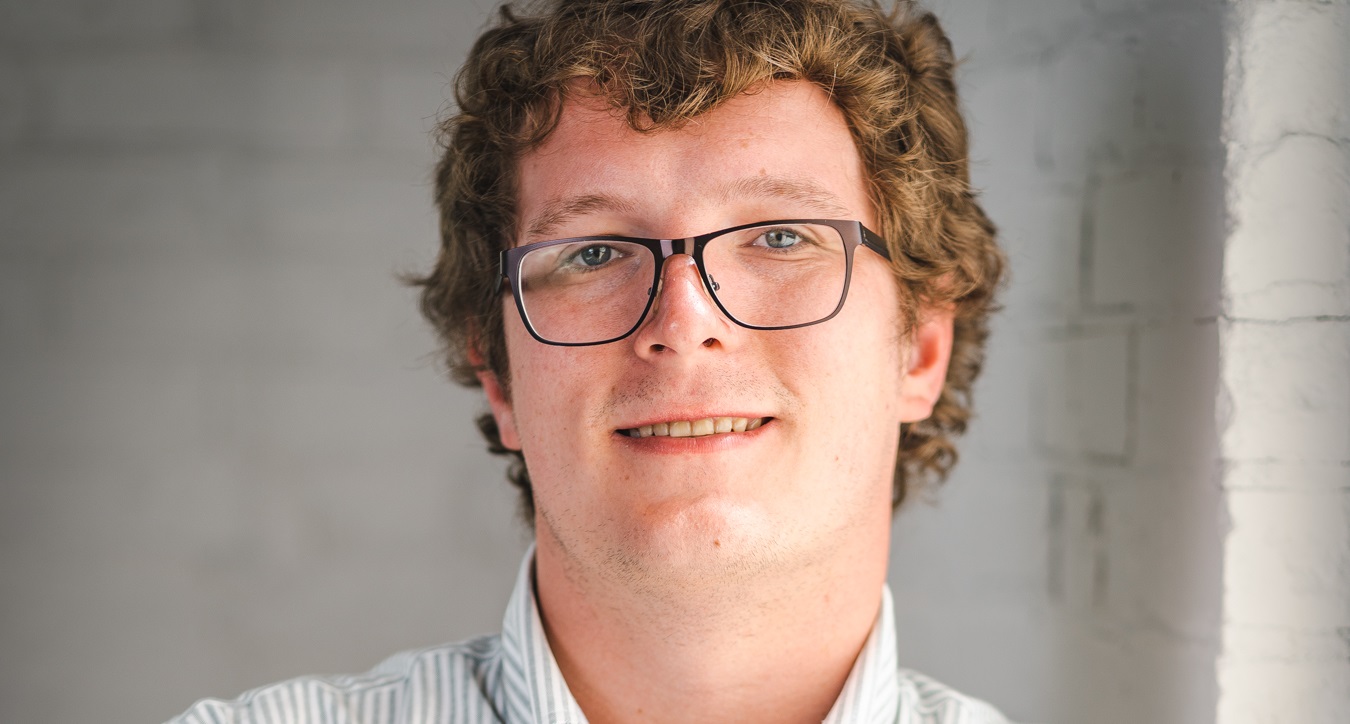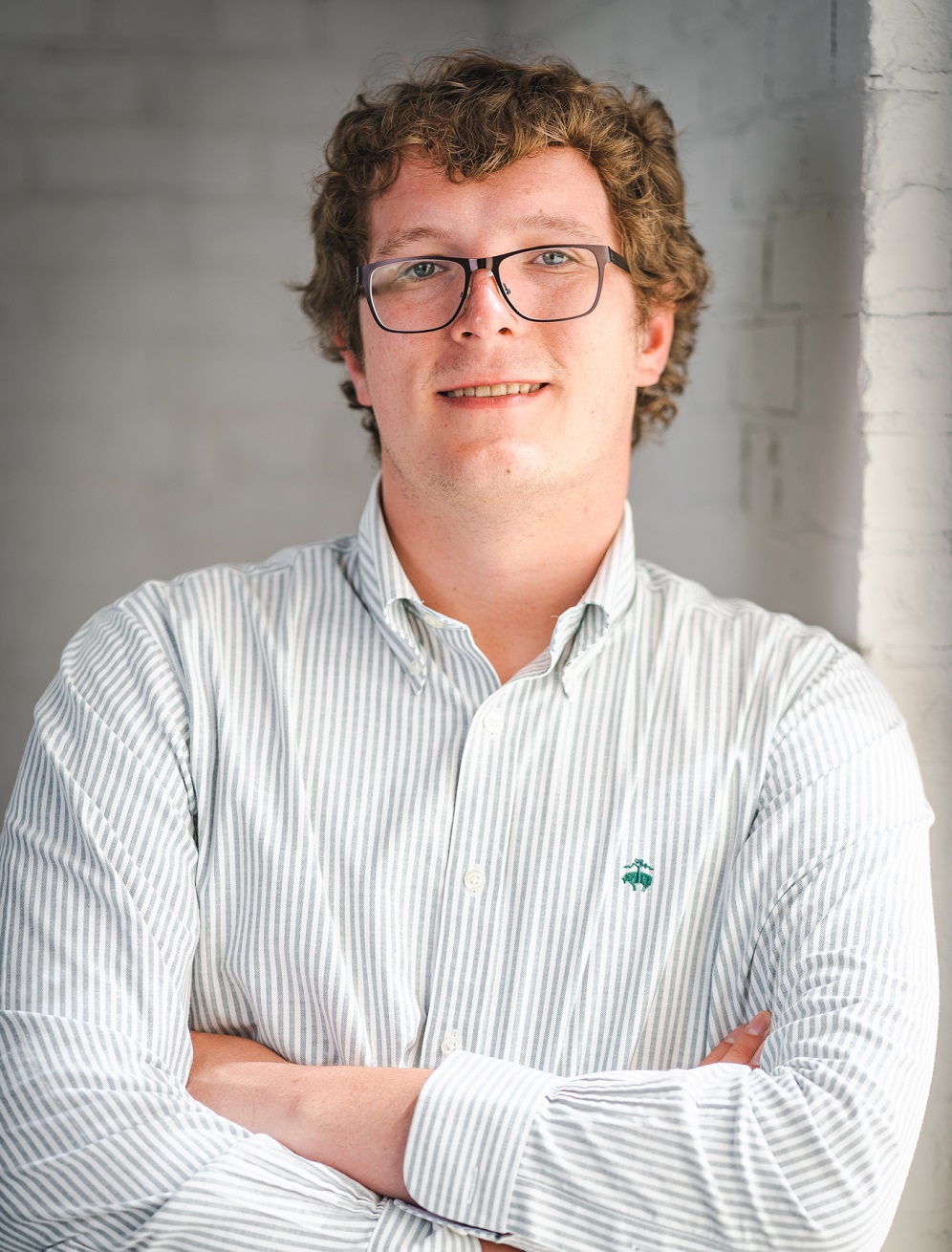LGBTQ in science: Greg Swan on the importance of role models
In partnership with myGwork.
By Will Stroude

“If a company isn’t going to accept me for who I am, I don’t want to work there.” Greg Swan is strong in his resolve to never have to hide who he is in the workplace. However, the journey to this point hasn’t been straightforward. Zoe Schulz, from myGwork, sat down to speak to Greg, from Abcam, about what it’s taken to reach this point, the lack of understanding that still exists around bisexuality, and why science needs to do better by the LGBTQ+ community.
Science isn’t an industry Greg fell into by accident. Growing up in New Haven, Connecticut, he remembers always being enthralled by the sciences, knowing that one day this would be the field he’d enter. Now, he’s a trained scientist leading a team as an Account Manager at Abcam, a global life sciences company that identifies, develops, and distributes high-quality biological reagents and tools that are crucial to research, drug discovery and diagnostics. Working across the industry, Abcam supports life scientists to accelerate scientific breakthroughs that will have a positive impact on society. Within his role, Greg supports a variety of studies, one of which is one of the longest-running research studies in the world, with generations of participants and spanning decades. “That was a really proud moment for me,” Greg says of this project. “And actually, [it] set the stage for me to know how to handle many future projects.”
Throughout his career, he’s worked at the National Cancer Institute researching Graft-versus-host Disease, an immune condition that occurs after transplant procedures. He then undertook a PhD in immunology but, without acceptance of mental health and pressure for LGBTQ+ inclusion, he left after four years with a Masters. When finding out he was on medication for bipolar disorder, he was even told, “Oh, I wonder if bipolar people even could get a PhD.” The stress became so severe it started to affect his physical health too.
“I was just a really unhappy [at university]. I loved the work and was hard-working. I almost never missed a day in my entire four years, and yet I didn’t leave with a PhD. I saw people in other departments who seemed less disciplined and needed maybe less help or more help, but they were able to go through the entire path. Today, I know now looking back that I could have got that PhD, I was just in a situation where I didn’t have support or a safety net.” It also gave him firsthand experience of the symbiotic and amplifying struggles of the intersectionality of the challenges faced by those who co-identify within different groups.
Growing up, Greg was very focused on school, he was an athlete and did well across his classes. Although he always had girlfriends, he knew he was bisexual, but it wasn’t until graduate school, when a long-term relationship ended, that he started dating both men and women. Although this was something he always knew about himself, he explains that other people can’t always get their head around it.

“People don’t always get it. And I’ve had people say, ‘Oh no, you’re just gay you just haven’t come out yet,’ or ‘Oh, Greg, you’re one of those people who’ll do anything, you’re just trying stuff out.’ And I think these people just don’t understand it at all.”
After his demoralising graduate school experience, one that no student should have to go through, he left and could only find retail work. Although he is now grateful for his time in retail and recognizes that it did teach him a lot, he explains it was still jarring to be veered so far off the course he had expected to take.
It was at this point that Greg realized he could no longer hide or pretend to be someone else. He recognized the need for LGBTQ+-inclusive mental health support and that this needs to be holistic care focusing on all aspects of a person’s identity.
“I saw a statistic that about 50% of faculty and students at universities hide their identity,” Greg shares. “Which is really shocking but not surprising to me. And, after I left university, I decided that I wouldn’t deal with this anymore. I’m married and I would say ‘my husband’ during the interview.”
Going forward, Greg wouldn’t hide his identity, but this also wasn’t easy. Often in the same moment as coming out in interviews, he’d think to himself “I really need this job.” Yet in the end, he decided to always be open. “If there was a problem with [being LGBTQ+], I wouldn’t get the offer or I wouldn’t work there. So, in a way, I’ve made sure that my workplace is comfortable with my identity.”
After entering back into the scientific world with several roles across different organizations, he then started at Abcam, where he’s now been for over a year and he’s noticed a very different environment from any he had been in before.
“I think Abcam is one of the most naturally inclusive and accepting environments that I’ve been in. But we know that there are things that we can work on as a company, not only just to be inclusive but to create systems and become social engagers to enact change. We also have even more commitment directly right from the top. We have ERG’s [employee resource groups] that are being executed at all levels, including the gender equality group, our multicultural group, our social mobility group, amongst others. And, of course, we have ARC [Abcam’s Rainbow Community] ERG supporting the LGBTQ+ community, which I’m co-leading.”
The ERG started with a meeting of employees from the various global offices, functions and teams, for an initial discussion of what their mission statement would include. The group quickly came together and decided their core goal would be to “support the LGBTQ+ community by creating safe spaces and policies to promote positivity, awareness, education and allyship. By networking internally and externally, we highlight Abcam as an authentically inclusive place to work where everyone can realise their full potential.”
Next, they realized they needed to decide on roles, so Greg became the co-lead who would focus on US engagement, alongside Elliot Adams, a Senior Marketing Manager in the UK.
“I saw this big issue at university, where they had all these LGBTQ+ resources for undergraduates but then nothing for graduate school. Then, at the next company I worked for, I was the only out LGBTQ+ person I was aware of and this wasn’t a small company, so I presume people just weren’t comfortable talking about it. But then I came to Abcam and it was such an open environment – so we go ‘Okay, let’s start an ERG.’”
Although still in its early stages, having launched just over seven months ago, their ERG has already achieved a lot. One of the first things they wanted to look at was policies around pronouns. They’ve teamed up with HR to ensure these are up-to-date and inclusive. They also organized allyship training during pride month and are looking forward to being able to host more events that can bring everyone together, while also increasing the visibility of LGBTQ+ colleagues and allies. Their next project is to put in place a method to measure inclusion and the needs of the LGBTQ+ community at Abcam so they can identify where to focus their efforts and drive change.
“When you’re the only one out, the only one visible, it’s hard to set up a network. And I think that there are two real barriers to being out in the workplace. One can be external pressure and then there’s also the perceived pressure. There’s this internal pressure of what we see the workplace as and do we think we can bring our authentic self […] and that’s why ERGs can be very important; they can also reduce the perceived pressure.”
The realm Greg lives in within Abcam is a world away from the strife of his early career and education. It’s one where there is a support system and a safety net, where LGBTQ+ visibility is not just accepted but cherished. Greg knows, categorically, that LGBTQ+ people belong across the scientific industry and he’s determined to ensure that spaces where all scientists can flourish continue to grow, both in the corporate world and within academia.
“I think LGBTQ+ people are often creative people and can be very brilliant, so it only makes sense that we go into the sciences. And LGBTQ+ people are everywhere but [in science] sometimes no one talks about it or no one sees it. So, in science, LGBTQ+ people become incredibly underrepresented and under-talked about. We should also have more women’s voices and Black voices in the sciences.” He adds, “When you also factor in mental health and, critically, the intersectionality of these groups and their struggles, these are things that we need to bring attention to. I think underrepresented people should be able to see themselves and we just don’t have enough of these scientists as role models.”
“We have made such progress that you couldn’t even imagine. Looking back [to] the 80s, [LGBTQ+ activists] really laid the groundwork and the foundation for where we are today. As a society, we are finally realizing that a person is a person, and let’s accept everyone for who they are. And this is phenomenal. That means that we are on the right track. So, I hope that that trend continues. I’m also hopeful that the LGBTQ+ community will become more accepted and more visible in science and academia. And it’s important that science does change in this way because I don’t want anyone to feel like they can’t bring themselves to the workplace. You don’t have to want to but, if you want to, you should be able to.”
Abcam is a proud partner of myGwork, the LGBTQ+ business community.
